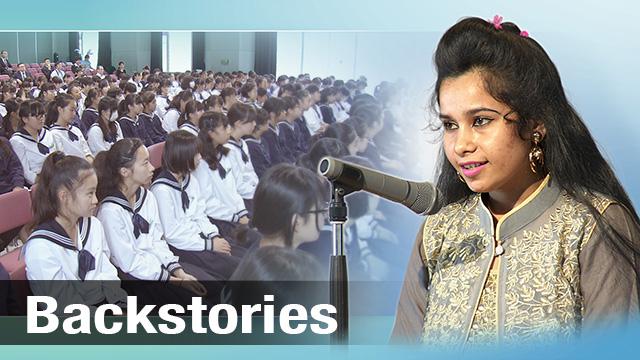Speaking out to Girls in Japan

"At the age of 14, my life changed. My father had gone to Saudi Arabia to earn money, but he had an accident and came home badly injured. Our financial situation got worse. That was when my family decided to marry me off to someone I had never met.”
This is the story of Shila, a university student from Bangladesh. She came to Japan last week to speak to an audience of Japanese school girls in Sagamihara, near Tokyo.
"My family arranged my marriage to lessen the burden on my father. I really wanted to study, but I would have had to give up my studies to marry.”
Shila said the man she was to marry was about 30 years old.
"I was determined not to marry and I spoke with my uncle, who was sympathetic. Finally, with his help, I gathered up all my courage and ran away just 2 days before the wedding. I believed my decision was the right one and hoped my family would understand that someday.
"But they were angry and thought I had brought shame on them in the community. My relatives were also very angry. When I returned to my family, they ignored me.”
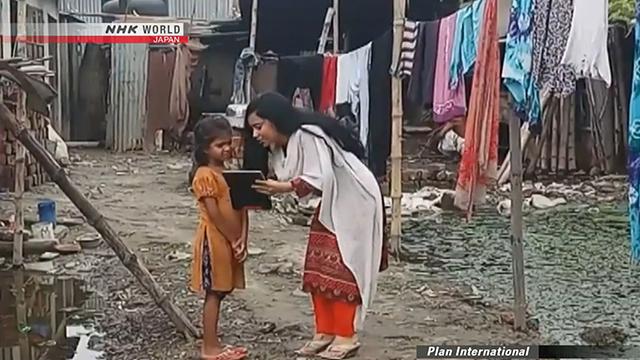
Child marriage around the world
Shila's case is far from unique. The UNICEF report gives a regional breakdown of the total number of women married before the age of 18.
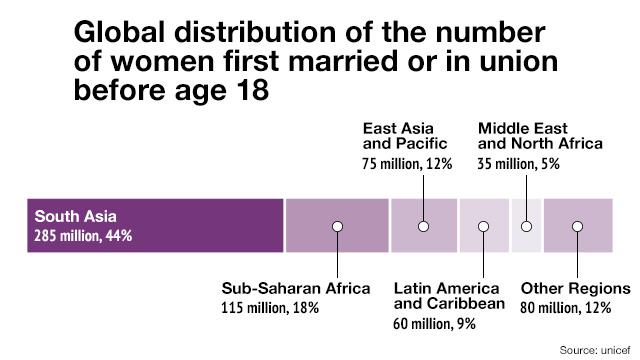
The number is highest in South Asia, at 285 million, then in Sub-Saharan Africa with 115 million, and East Asia with 75 million.
Of the 38% of women in Sub-Saharan Africa married under age 18, 12% were under age 15. In South Asia, those figures are 30% and 8% respectively, and 25% and 5% in Latin America and the Caribbean.
The United Nations Population Fund (UNFPA) has called child marriage a violation of the right to choose whom and when to marry. They say child marriage especially threatens a girl's health, even at the risk of death, because she is not ready, either physically or mentally, to become pregnant. They say early marriage also deprives girls of education and opportunities for financial independence. The UN has called for an end to the practice by the year 2030.
Japanese Girls Respond
Shila had to earn her own money to graduate from junior high school because her family refused to help. She worked as a tutor 4 hours a day in addition to her school work. When she entered high school, her family forgave her.

Today, she campaigns against child marriage and advocates for education.
"I want to show how powerful educated girls can be," she said.
The Japanese girls hearing Shila's story are at the age she was when she was being forced to marry.
"I believe marriage should be celebrated…so I don’t think it’s a healthy situation when it's something you are forced to escape," said one of them.
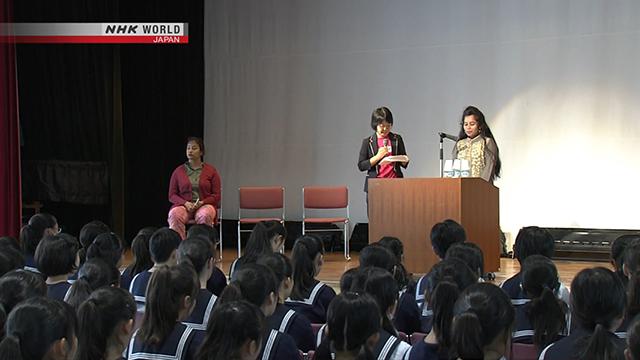
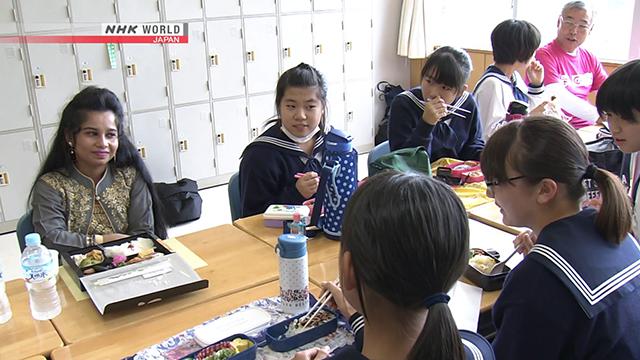
They all agreed that Shila had inspired them with her bravery to speak out and act. "I’ve learned that it’s important to believe in yourself and it’s important to create an environment where other people can believe in themselves, too,” said one.
"There’s lots of discrimination all around the world," said another. "If anyone around me is being discriminated against, I want to help them, like Shila.”

During her visit to Japan, Shila also appeared at an International Girl’s Day event in Tokyo's Roppongi district, where she shared her story and appealed for an end to discrimination.
"I'm here to tell my story, so if they can take a good message from it, they will realize the power within themselves," she said. "I have a dream to become a social worker and to work for women's empowerment in Bangladesh and promote gender equality.”
Ananya Asad is assistant manager at Plan International Bangladesh. “The cultural norm and people’s attitude towards child marriage is the biggest barrier to combatting it," she said "Together, we can come up with the solution to tackle gender norms.”
The World Economic Forum ranks Japan 64th out of 140 countries and territories on the participation of women in social and economic activity, although the country ranks 5th overall in global economic competitiveness. Japan still has a long way to go on the issue of gender equality.
